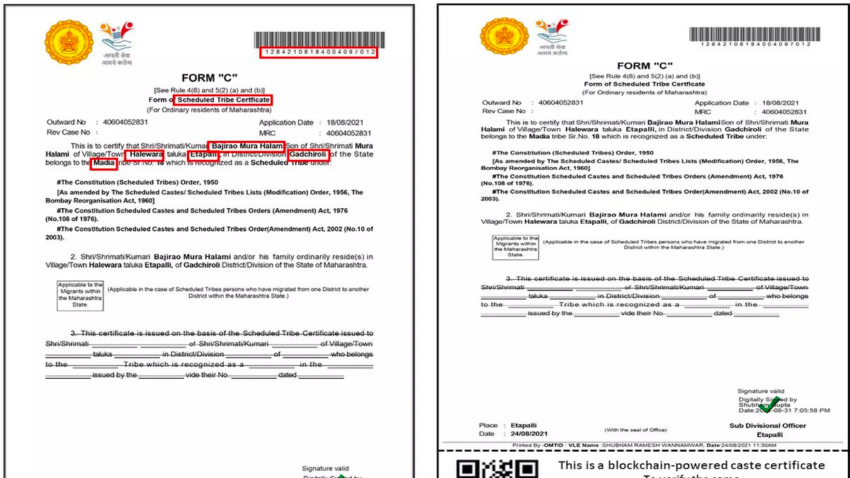NITI Aayog, an Indian public policy think tank, has acknowledged the blockchain-based caste certificate initiative on the Polygon network.
While crypto is yet to achieve mass adoption, the shoutout from the National Institute for Transforming India (NITI) Aayog and United Nations Development Programme (UNDP) has made the Indian crypto community hopeful.
75 Best Practices: Blockchain-Based Caste Certificate
NITI Aayog and UNDP jointly published a “Best Practices in Social Sector: A Compendium 2023 Report.” The report gives a shoutout to 75 best practices and policies that deliver sustainable development goals for people and communities.
Among other best practices, India’s apex public policy think tank mentioned Gadchiroli district’s initiative to issue caste certificates using the Polygon blockchain.
Last year, Gadchiroli district in the Maharashtra state issued 65,000 caste certificates for the Scheduled Tribe (ST) population.

How Does Blockchain Help?
India grants specific privileges to individuals from underdeveloped and tribal communities, and caste certificates are used to verify their eligibility.
However, some individuals with malicious intent often manipulate government records to fraudulently claim entitlement to these benefits.
According to the report, blockchain-based certificates help in:
- Easy verification of caste certificates
- Reduction in fraudulent incentive claims
- Improving privacy as blockchain stores the data in the form of hash
- Building more decentralized applications (dApps) using the Gadchiroli smart contract Application Programming Interface (API).
India has maintained a strict stance towards crypto with its 30% flat tax on gains and 1% tax deduction at source (TDS). But, the acknowledgment has pleased the community and ignited hopes for blockchain mass adoption.
Crypto educator Kashif Raza wrote on Twitter:
This is great news for the Indian Web3 industry. It provides a good validation of crypto use cases for Indian e-governance, which is a significant deviation from the social narrative that crypto used only for speculative purposes.
Got something to say about blockchain-based certificates or anything else? Write to us or join the discussion on our Telegram channel. You can also catch us on TikTok, Facebook, or Twitter.
For BeInCrypto’s latest Bitcoin (BTC) analysis, click here.
Disclaimer
In adherence to the Trust Project guidelines, BeInCrypto is committed to unbiased, transparent reporting. This news article aims to provide accurate, timely information. However, readers are advised to verify facts independently and consult with a professional before making any decisions based on this content. Please note that our Terms and Conditions, Privacy Policy, and Disclaimers have been updated.


